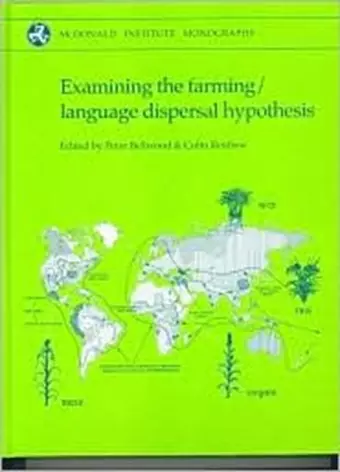Examining the Farming/Language Dispersal Hypothesis
A Colin Renfrew author Peter Bellwood author
Format:Hardback
Publisher:McDonald Institute for Archaeological Research
Published:1st Jul '03
Should be back in stock very soon

Linguistic diversity is one of the most puzzling and challenging features of humankind. Why are there some six thousand different languages spoken in the world today? Why are some, like Chinese or English, spoken by millions over vast territories, while others are restricted to just a few thousand speakers in a limited area? The farming/language dispersal hypothesis makes the radical and controversial proposal that the present-day distributions of many of the world's languages and language families can be traced back to the early developments and dispersals of farming from the several nuclear areas where animal and plant domestication emerged. For instance, the Indo-European and Austronesian language families may owe their current vast distributions to the spread of food plants and of farmers (speaking the relevant proto-language) following the Neolithic revolutions which took place in the Near East and in Eastern Asia respectively, thousands of years ago. In this challenging book, international experts in historical linguistics, prehistoric archaeology, molecular genetics and human ecology bring their specialisms to bear upon this intractable problem, using a range of interdisciplinary approaches. There are signs that a new synthesis between these fields may now be emerging. This path-breaking volume opens new perspectives and indicates some of the directions which future research is likely to follow.
ISBN: 9781902937205
Dimensions: unknown
Weight: unknown
520 pages